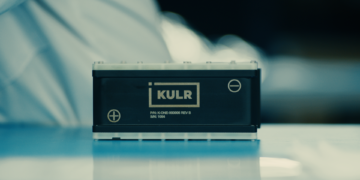Exploring New Frontiers in Effective Weight Management
Obesity continues to be a pressing global health issue, necessitating the continual evolution of treatment strategies. A recent survey involving 30 healthcare professionals, comprising 14 endocrinologists and 16 obesity specialists, sheds light on current satisfaction levels with existing obesity treatments and underscores the critical areas requiring enhancement. This article delves into the survey findings and discusses the potential of emerging therapies such as AMGN’s MariTide (AMG 133) and VKTX’s VK2735 to address identified gaps in the obesity treatment landscape.
Key Findings from the Survey
The survey highlights that while the satisfaction with current obesity treatments remains reasonable, there is significant room for improvement. The primary areas identified for enhancement include:
- Access and Availability: Ensuring that treatments are easily accessible to a broader patient population.
- Oral and Less Frequent Dosing: The preference for oral medications and treatments that require less frequent dosing is evident, suggesting a need for more convenient administration methods.
- Additional Benefits Beyond Obesity: There is a strong demand for treatments that not only promote weight loss but also preserve lean muscle mass and offer other health benefits.
Challenges in Current Obesity Treatments
One of the major concerns identified is the high rate of treatment discontinuation. The survey reveals that affordability and tolerability are the main drivers of discontinuation, highlighting a critical barrier to effective long-term obesity management. Additionally, the lack of reimbursement for GLP-1 drugs and the financial burden on patients further exacerbate the issue.
Addressing Treatment Discontinuation and Side Effects
Given the significant discontinuation rates related to the intolerability of GLP-1 drugs, the survey explores various approaches to managing side effects. Dose reduction emerges as the leading strategy, emphasizing the need for tailored treatment plans to enhance patient adherence. Maintaining patients on therapy is crucial to mitigate the risk of obesity-related diseases, particularly cardiovascular disease, type 2 diabetes, and heart failure.
Future Clinical Updates and Physician Expectations
Physicians express a keen interest in long-term efficacy and safety in future clinical updates, particularly for subcutaneous VK2735 and MariTide. Additionally, there is a call for more information on the mechanism of action and the durability of weight loss after discontinuation. These insights align with previously reported findings, indicating that:
- At least 30% of patients discontinue GLP-1 therapy within a year.
- GLP-1 drugs are poorly reimbursed, posing financial challenges for patients.
- Some physicians are reluctant to prescribe GLP-1 drugs due to concerns about patient tolerability and affordability.
The Importance of Preserving Lean Muscle Mass
The survey underscores that not all weight loss is created equal. The loss of lean muscle mass, often associated with negative outcomes, is a significant concern. Weight cycling, or the repeated loss and regain of weight, exacerbates the risk of low muscle mass. Since the loss of lean muscle mass can undermine the health benefits of weight loss, future obesity treatments must prioritize adherence to therapy and the preservation of lean muscle mass.
Advancements in Body Composition Monitoring
The survey anticipates that both physicians and patients will become increasingly familiar with fat distribution and body composition as advanced imaging techniques become more widely used. This trend is seen as favorable for AMGN’s MariTide, which may benefit from this growing awareness.
The Promise of Rx to OTC Switches
The ultimate opportunity in obesity treatment may lie in the development of a drug that can transition from prescription (Rx) to over-the-counter (OTC) status. The FDA’s guidance on such switches emphasizes the need for drugs that are safe, effective, and easily self-administered, with patients capable of monitoring their own treatment. VKTX’s oral VK2735 is seen as a potential candidate meeting these criteria, extending the product lifecycle beyond patent expiry.
Conclusion: A Path Forward in Obesity Treatment
The survey findings provide a comprehensive overview of the current challenges and opportunities in obesity treatment. As new therapies like AMGN’s MariTide and VKTX’s VK2735 emerge, there is hope for more effective, accessible, and convenient treatment options. By addressing key areas such as affordability, tolerability, and the preservation of lean muscle mass, the future of obesity treatment looks promising. Continued innovation and patient-centered approaches will be crucial in advancing the fight against obesity and improving overall health outcomes.
You might like this article:Goldman Sachs Reports a 150% Surge in Q2 Profits Amid Investment Banking Revival











